
Young Generation's Health in the Face of Increased Sugar Consumption
According to the World Health Organization (WHO), Vietnamese people's consumption of sugary drinks increased fourfold from 18.5 liters/person (2009) to 66.5 liters/person (2023).
On average, a Vietnamese person consumes about 46.5 grams of sugar per day, close to the maximum limit of 50 grams per day and nearly twice as high as the WHO's recommended level of less than 25 grams per day.
On average, a Vietnamese person consumes about 46.5 grams of sugar per day, nearly double the WHO's recommended level of less than 25 grams per day.
Dr. Truong Tuyet Mai, Deputy Director of the National Institute of Nutrition, said that over the past 10 years, mass media and scientific research have pointed out many harmful effects related to sugary drinks. The use of these products is also increasing rapidly in Vietnam. Meanwhile, the rate of overweight and obesity in Vietnamese children is alarming.
Without effective interventions, it is estimated that by 2030, Vietnam will have nearly 2 million children aged 5-19 years old who are overweight or obese.
Without effective interventions, it is estimated that by 2030, Vietnam will have nearly 2 million children aged 5-19 years old who are overweight or obese.
Doctor Truong Tuyet Mai, Deputy Director of the National Institute of Nutrition
“Scientifically, we cannot wait for research specifically for Vietnamese children on the health consequences they face because there is already much evidence. We need to propose a policy of imposing special consumption tax on sugary drinks to limit the consumption of this product,” Dr. Mai emphasized.
Dr. Angela Pratt, WHO Representative in Vietnam, also assessed: "On average, Vietnamese people consume 1.3 liters of sugary drinks per week, so the rate of overweight and obesity is increasing rapidly, especially among young people. In cities, more than 1 in 4 adolescents aged 15-19 is overweight or obese. We need to take action to reverse this negative trend."

There is mounting evidence that sugary drink consumption increases the risk of type 2 diabetes, tooth decay and contributes to overweight and obesity. Sugary drink consumption can even lead to an increased risk of heart disease, stroke and other conditions including cancer, added Dr Angela Pratt, WHO Representative in Viet Nam.
Vietnam, with its rapid urbanization and changing modern lifestyle, is now facing a crucial moment for action.
Lessons from the world : Increase taxes, reduce sugar, protect health, benefit the community
Since 2016, WHO has called on countries to impose excise taxes on sugary drinks at a recommended rate of 20% of the retail price. To date, about 110 countries around the world have implemented taxes on sugary drinks and have seen significant positive impacts from this policy, including 7 countries in Southeast Asia.
There are about 110 countries around the world that are implementing taxes on sugary drinks.
Such measures can slow the rise in overweight and obesity rates, especially among children, and help reduce the risk of non-communicable diseases in future generations, experts shared at the Workshop on the harmful effects of sugary drinks organized by the Ministry of Health in collaboration with WHO and Healthbridge Canada in Vietnam.
Experience around the world shows that if a tax increases the price of drinks by 10%, people will drink about 11% less. Communities will often switch to healthier drinks.
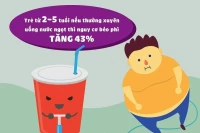
Which sugary soft drinks are proposed to be subject to special consumption tax?
Not only WHO, the United Nations and many global health organizations have made a clear stance that taxes on sugary drinks are one of the most effective and least expensive measures to prevent non-communicable diseases.
In Latin America, Mexico was the first country to implement a sugar tax in 2014, with a tax of about 10% of the retail price. After the first year, consumption of sugary drinks dropped by 7.6%. The policy prevented more than 239,000 cases of obesity, saved nearly $4 billion in long-term health costs, and did not reduce manufacturing jobs.
In the UK, the tax is levied at VND6,000-8,000 per litre depending on the amount of sugar in the drink. The tax on sugary drinks has helped reduce the amount of sugar in soft drinks in the UK by 45 million kg per year.
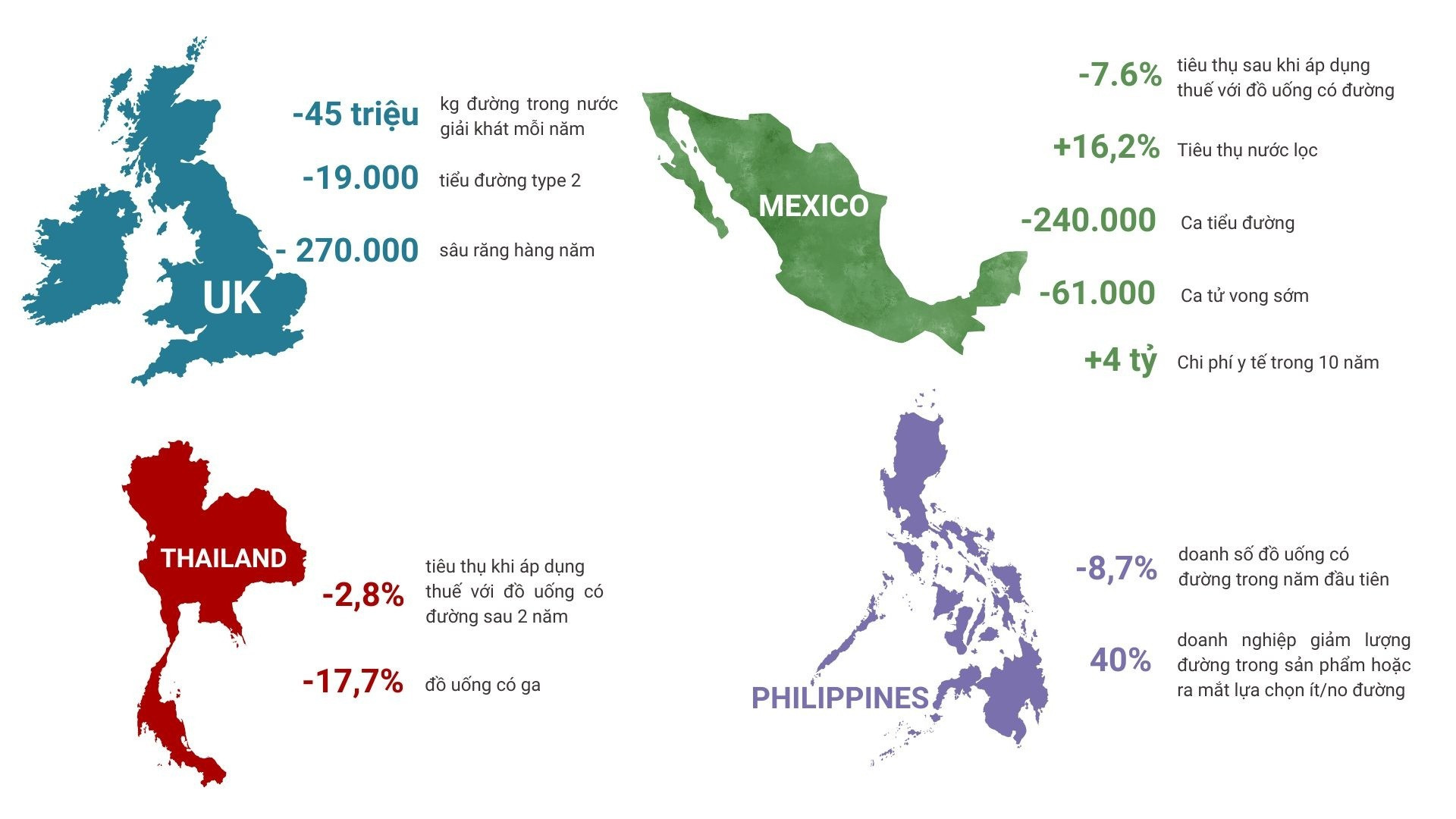
Thailand imposed a tax on sugary drinks from September 2017, with a tax rate of VND778-3,500/liter. After 2 years of implementation, the average consumption of sugary drinks per person per day has decreased by 2.8%; for carbonated drinks alone, it has decreased by 17.7%.
Taxing sugary drinks not only helps regulate consumer behavior and raise public health awareness, but also generates significant revenue for investment in social programs.
Dr. Angela Pratt also added that applying a consumption tax on sugary drinks not only benefits health, reduces health-related costs and brings revenue to the government budget.
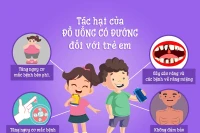
WHO: Vietnam cannot hesitate to impose special consumption tax on sugary soft drinks
In Mexico, taxes are used to install water filters and provide health education in schools. In the UK, £340 million a year is spent on physical education for students and nutritious meals for disadvantaged children. Thailand allocates revenue to a Health Promotion Fund to promote health awareness and policy. The Philippines has a clear set of rules: 50% for health insurance and infrastructure, 30% for education and combating malnutrition, and the rest is used flexibly according to national priorities.
In a global trend, many countries have adopted the policy of taxing this type of product as an effective tool not only to change consumer behavior, but also to create financial resources for health care, education and social security programs. This is a dual approach that both helps prevent disease and invests in the future of the community.
Source: https://nhandan.vn/do-uong-co-duong-can-hang-rao-thue-de-bao-ve-the-he-tre-post885254.html








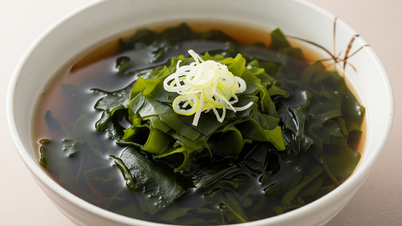

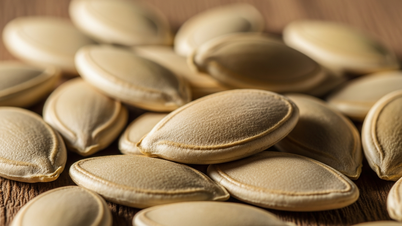


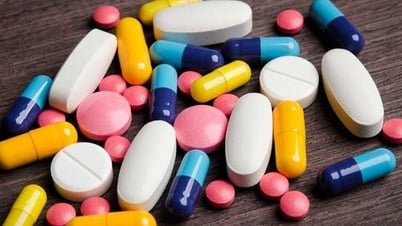

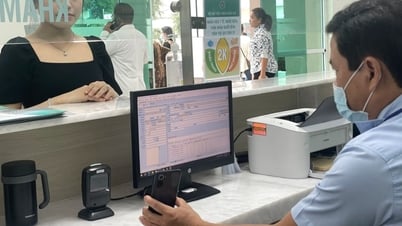

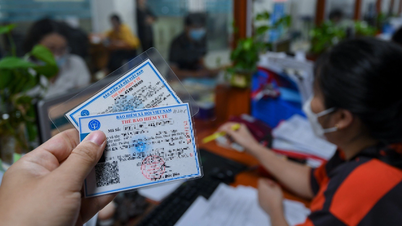









![[Video] Exhibition celebrating 100 years of Vietnamese Revolutionary Journalism](https://vphoto.vietnam.vn/thumb/402x226/vietnam/resource/IMAGE/2025/6/18/1ba7ffdc6eef4b1682a3768741aca732)



















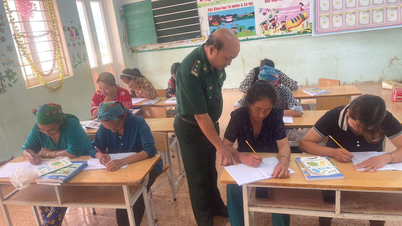





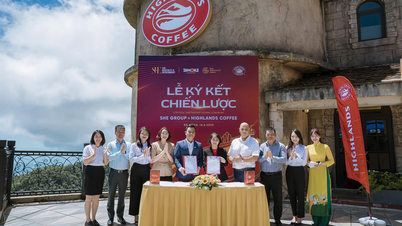
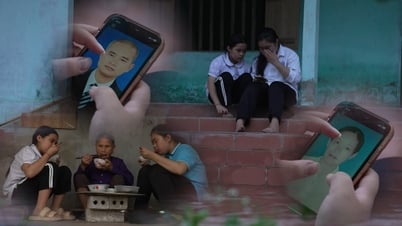




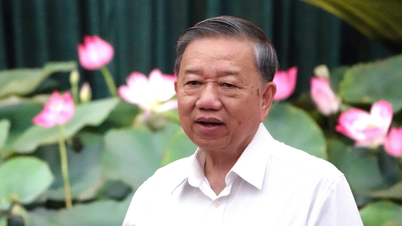










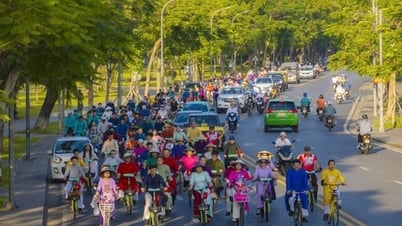
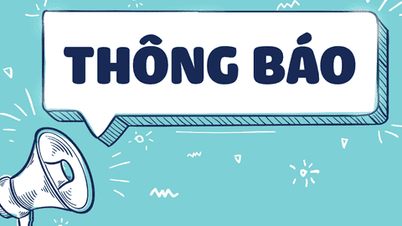



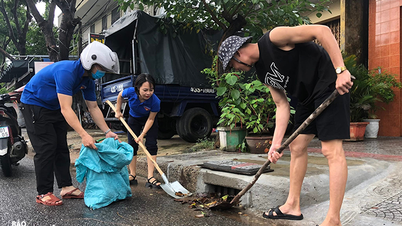




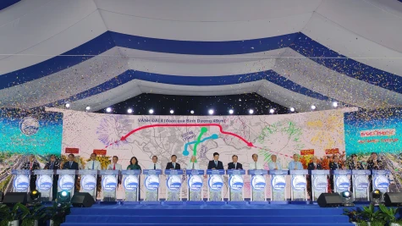


















Comment (0)